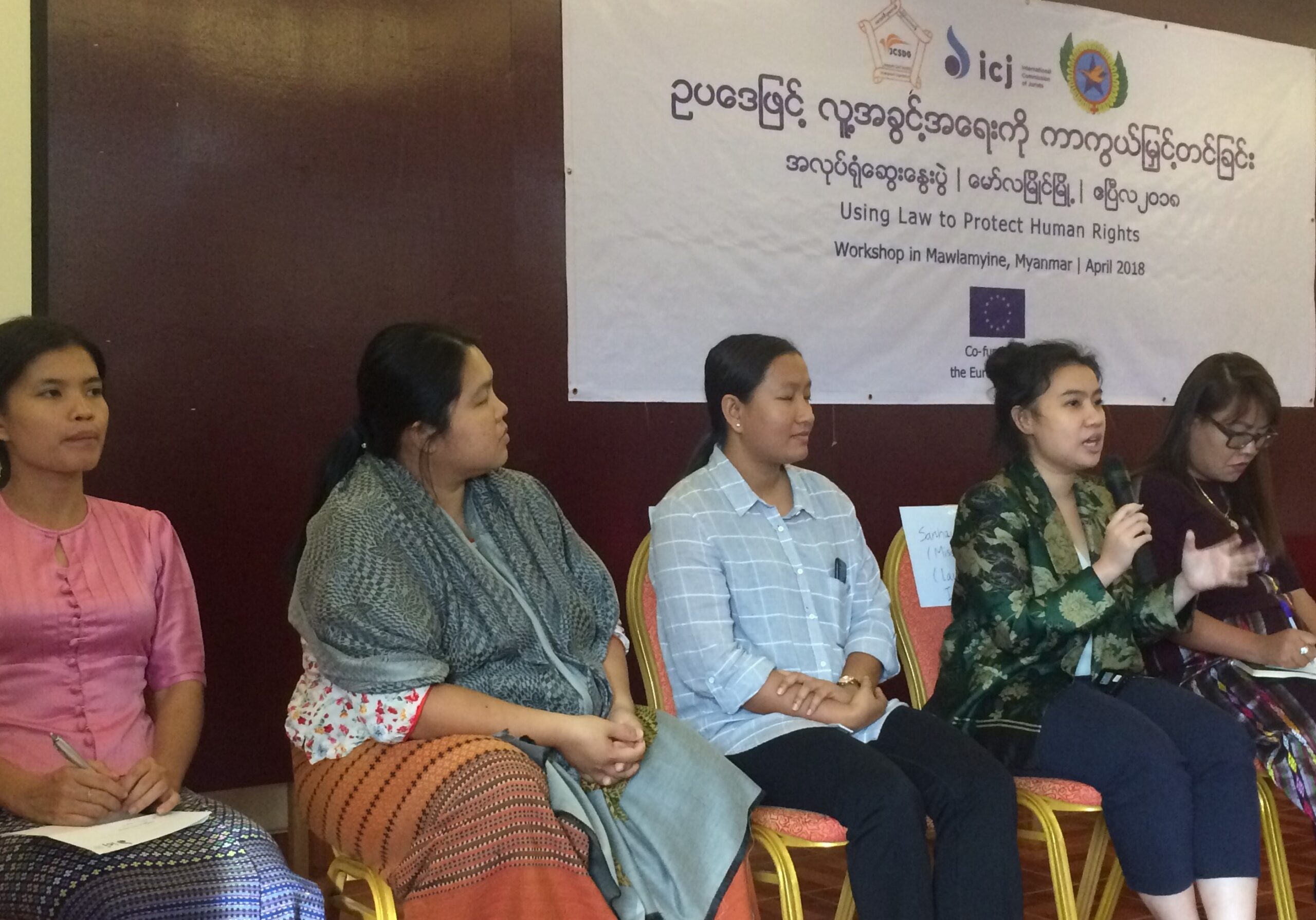On 7-8 April, in collaboration with Mon Women’s Organization and Jeepyah Civil Society Development Organization, the ICJ held a workshop for lawyers, community leaders and human rights defenders in Myanmar’s southeastern Mon State, entitled “Using Law to Protect Human Rights”.
Prior to this workshop, on 6 April the ICJ met with the Mon State High Court, including its Chief Justice.
Legal advisers from the ICJ had a constructive discussion with the justices about judicial reform in Myanmar, including the role of lawyers and civil society, as well as jurists, in advancing accountability and access to justice.
The two-day workshop aimed to identify challenges and opportunities for human rights advocacy using law, and to encourage the building of relationships and networks between lawyers and civil society.
The workshop considered strategic litigation concepts and case studies in the region. It also discussed the landscape of rule of law and justice in Myanmar, particularly the experiences regarding access to justice of some sixty participants from Mon State.
The sessions were introduced by international and national experts and leaders from partner CSOs, followed by interactive discussions where participants contributed their own observations and experiences.
Sean Bain, ICJ International Legal Adviser recognized in his opening statement that the formal justice system in Myanmar was making moves toward reform, offering new opportunities for legal advocacy for human rights across issues.
He discussed strategic litigation as a tool to address impunity for crimes and promote accountability for perpetrators of human rights violations.
U Nyein Chan Maung Maung, from Myanmar’s MyJustice Programe presented the results of the nationwide justice survey regarding peoples’ perceptions of justice and the experiences of people in accessing justice services.
He highlighted that few people in Myanmar use formal judicial processes as a means to access justice.
The ICJ’s Legal Adviser in Thailand, Sanhawan Srisod, discussed experience from Thailand, where lawyers and civil society actors regularly collaborate on human rights cases in the courts.
Daw Aye Mon Thu from the Dawei Pro Bono Lawyers Network addressed the importance of first understanding the concerns of communities affected by rights violations, as a basis for identifying strategies to support them to reference the laws in both judicial and non-judicial advocacy.
Senior Advocate Daw Zar Li Aye noted the crucial role of lawyers and civil society members in protecting the human rights.
Hnin Win Aung, ICJ Legal Adviser, facilitated discussions on key legal challenges and opportunities in accessing to court to seek justice for human rights abuses in Myanmar, with participants sharing their own experiences and exchanging strategies for inclusive collaboration to protect human rights.
The workshop concluded with an all-women panel discussion where the speakers from across Myanmar, and from Thailand, shared experiences of accessing courts to seek justice for human rights abuses, particularly in cases of sexual and gender based violence.
Speakers emphasized that the engagement of civil society with lawyers is essential to promote the awareness of local people on the applicable laws and their rights.
This event is part of the ICJ’s ongoing collaboration with Myanmar civil society actors.




